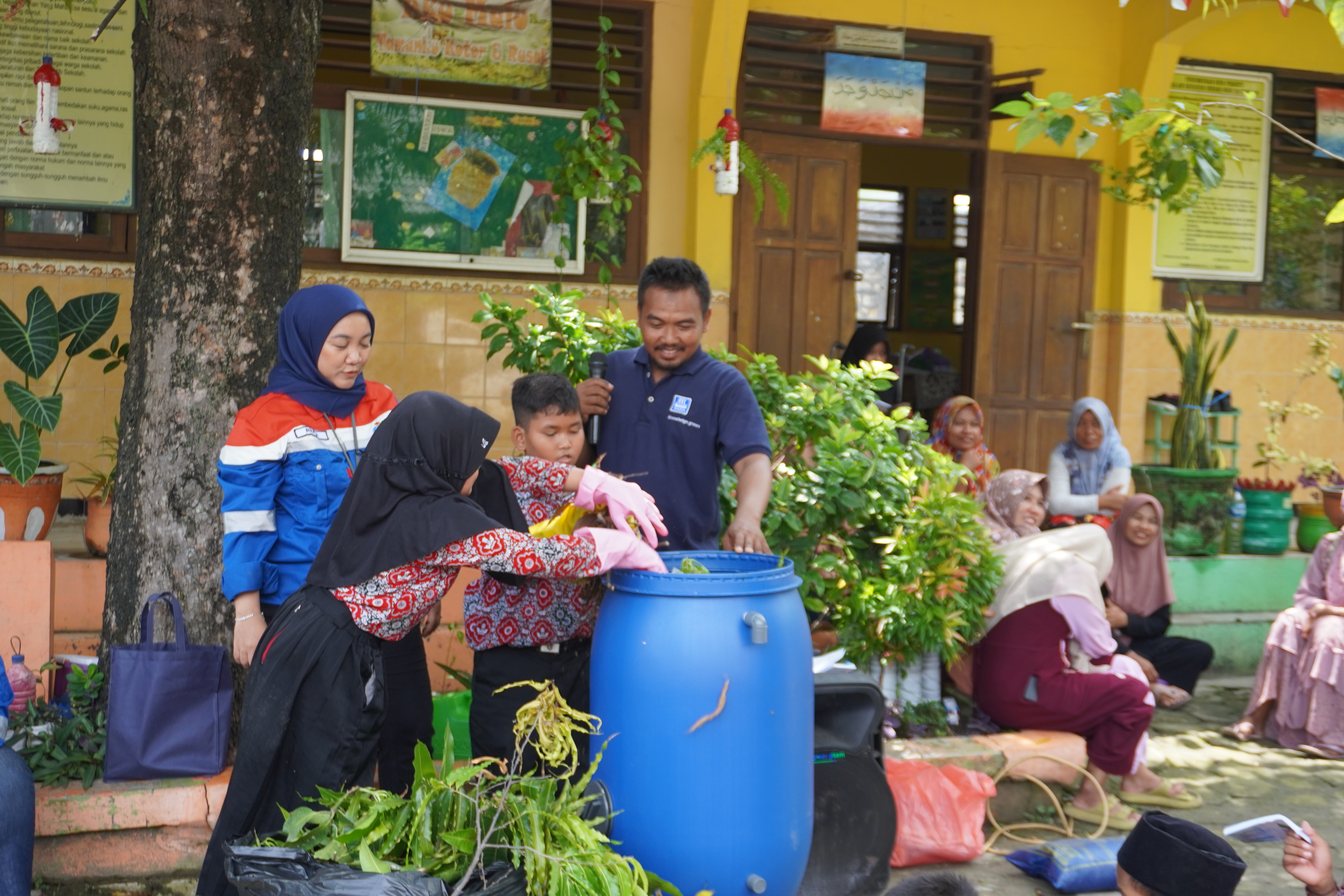
Reducing Greenhouse Gas Effects: Students of SDN 02 Beji Learn Organic Waste Management

Tuban, October 30, 2025 – Over the past few years, the issue of waste in Indonesia has reached an alarming level. According to data from the National Waste Management Information System of the Ministry of Environment and Forestry, Indonesia generated 34.9 million tons of waste in 2024 — an increase from 31.9 million tons in 2023. It should be noted that this figure is based on reports from districts and cities across the country regarding waste managed by their respective local governments. When combined with unmanaged waste, the total is estimated to exceed 60 million tons per year.
A similar trend is seen in Tuban Regency, where the Tuban Regency Environmental and Transportation Office recorded an increase in managed waste from 70 tons per year in 2022 to 110 tons per year in 2024. Organic waste accounts for 50–60% of the total, representing a serious concern. This is because decaying organic waste releases methane gas, a major contributor to the greenhouse effect, while also attracting disease-spreading pests such as flies and rats, and polluting water sources.
Responding to this issue, dozens of students from SDN Beji 02, Jenu District, Tuban Regency, learned how to make compost from organic waste under the guidance of Kampoeng Tani Tuban on Thursday (30/10/2025). This activity was part of the Persada Program (Environmental Education Program for Schools Surrounding the GRR Tuban Project Area), organized by PRPP in several schools located in Jenu District, Tuban Regency.
The Principal of SDN Beji 02, Suciyati, expressed her appreciation for the Persada Program, emphasizing that it supports the school’s efforts to maintain a clean and healthy environment.
“Last year, our school received the Adiwiyata award at the Regency level, and next year we plan to participate at the Provincial level. So, the program organized by PRPP greatly supports our preparation for the Adiwiyata assessment,” said Suciyati in her opening remarks.
She also extended her gratitude to PRPP for selecting her school as one of the program’s beneficiaries.
“We hope that the implementation of this program brings benefits and positive impacts for both parties,” she added.
The Persada Program is part of PRPP’s commitment to contributing to environmental preservation, particularly in Tuban Regency. This commitment was reaffirmed by Sigit Pradjaka Sugestihanto, Acting President Director of PRPP, in a separate interview.
“As we know, Pertamina has actively contributed to efforts in mitigating the impacts of global climate change over the past several years. In line with that commitment, we at PRPP, as part of the Pertamina Group, are also taking active steps in the same direction — especially around our project area in Tuban Regency,” said Sigit.
When asked about the significance of the Persada Program, Sigit expressed optimism for the future of environmental conservation in Tuban Regency.
“The Persada Program is expected to provide meaningful environmental education for students, inspiring them to take an active role in environmental preservation in the future — particularly in tackling the waste issue. We know that organic waste can be processed and transformed into useful materials such as compost and other beneficial products,” he concluded.
The Persada Program 2025 marks the third year of implementation, following previous programs held in 2023 and 2024 by PRPP and the GRR Tuban Project. In addition to SDN Beji 02, the program was also conducted at MI Miftahul Huda in Rawasan Village and SDN Mentoso in Jenu District. The activity was also attended by Astrid Pinkan, Manager of Human Capital Operations & Medical PRPP, who delivered a session on the importance of environmental conservation.
Beyond environmental education activities, PRPP also donated 110 fruit and ornamental plant seedlings as well as composting kits to the three participating schools. A total of 285 participants joined the event, which also reflects the Company’s commitment to supporting the Sustainable Development Goals (SDGs), particularly Goal 13 (Climate Action) and Goal 15 (Life on Land).

News Highlight







